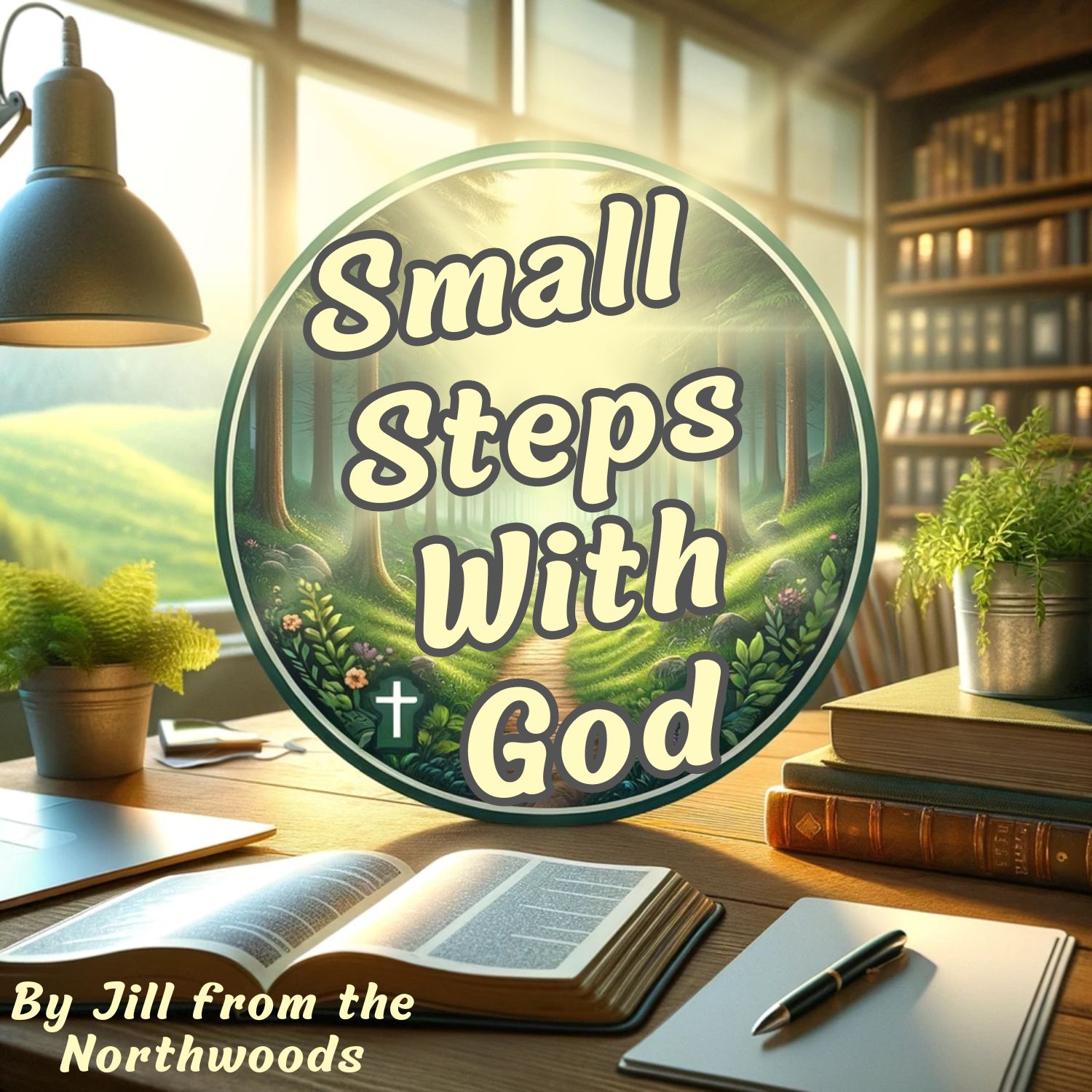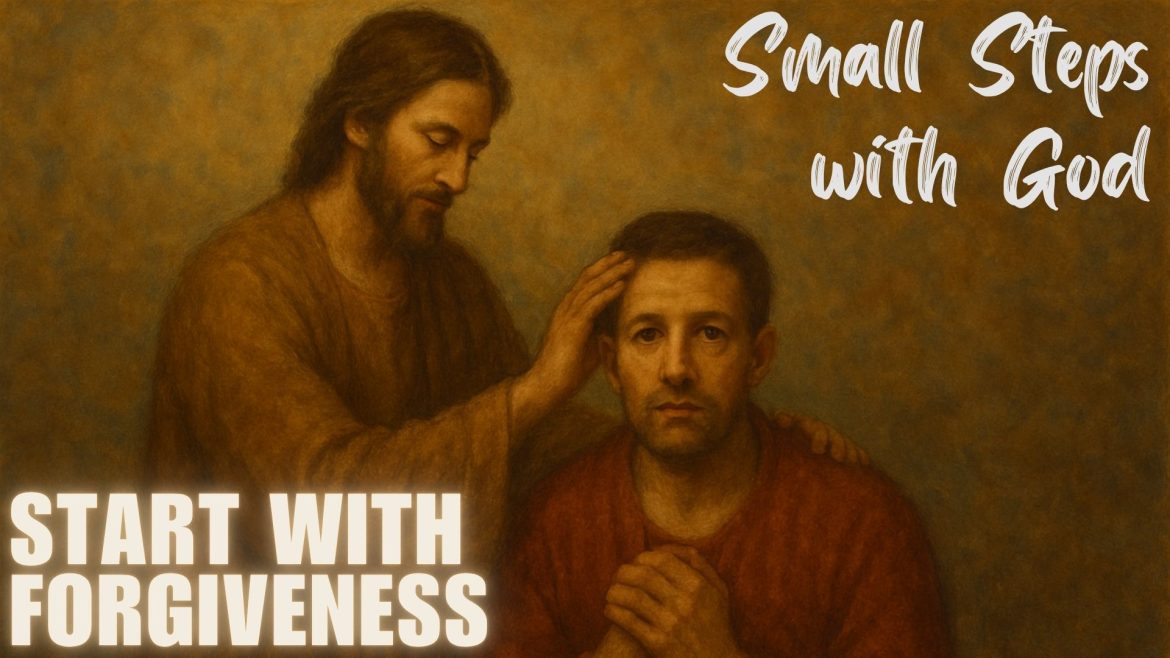Forgiveness is one of the most powerful, yet most misunderstood principles in Christian living. It’s not about excusing wrongdoing or pretending that hurt doesn’t matter. Instead, forgiveness is a deliberate, often difficult, act that frees us from emotional chains. Drawing from R.T. Kendall’s book Total Forgiveness and personal insights from the podcast Small Steps with God, we explore how forgiveness can transform lives and align us with God’s grace.
Understanding the Weight of Unforgiveness
At its core, unforgiveness is like a poison we drink hoping it harms someone else. Holding onto resentment locks us in a personal prison, often causing more damage to our own hearts than to the person who wronged us. The Christian faith repeatedly emphasizes the importance of forgiveness—not only because God commands it but because it heals us.
Jesus exemplified this on the cross, praying for those who persecuted him: “Forgive them, for they know not what they do.” This isn’t just a noble sentiment; it’s a call to action for everyone who seeks to live with emotional freedom and spiritual integrity.
Forgiveness Is Not Approval or Weakness
One of the most common misconceptions about forgiveness is that it means letting someone off the hook. That’s not the case. Forgiveness acknowledges the truth of what happened—it doesn’t minimize the pain or pretend the offense was acceptable. But it also refuses to let that pain dictate the rest of your life.
Forgiveness is strength. It takes courage to say, “I forgive,” and mean it. That’s not weakness—it’s a powerful decision to release someone else’s hold on your emotional well-being.
Biblical Models of Forgiveness
The story of Joseph in Genesis is a compelling example. Betrayed and sold into slavery by his brothers, Joseph later rose to power in Egypt. When faced with the very brothers who betrayed him, Joseph chose compassion over revenge. “You intended it for ill, but God intended it for good,” he said—a profound acknowledgment of both human hurt and divine purpose.
Similarly, King David, who was relentlessly pursued by Saul, chose not to exact revenge. He consistently tried to reconcile despite being wronged. These biblical accounts remind us that forgiveness isn’t about forgetting; it’s about refusing to be consumed by vengeance.
Praying for Those Who Hurt Us
Perhaps the most radical suggestion from Kendall’s book—and echoed in the podcast—is to actively pray for blessings for those who have wronged us. This isn’t about faking kindness; it’s about transforming our hearts through action. As the speaker put it, “Lord, I choose to forgive. Help my heart to catch up.”
Even when our emotions lag behind, our prayers can pave the way. We may not feel like forgiving, but by praying for our offenders’ well-being, we begin to unclog the spiritual and emotional blockages within us.
Forgiving God?
This might sound controversial, but many people harbor silent resentment toward God—especially when prayers seem unanswered or tragedy strikes. While God doesn’t need our forgiveness in the literal sense, we may need to “forgive” God to restore our spiritual relationship with Him. It’s not about God being wrong; it’s about us acknowledging and releasing the bitterness that builds up in misunderstanding or grief.
Stories of Radical Forgiveness
Corrie ten Boom’s story is a powerful modern testimony. After surviving a Nazi concentration camp where her sister was killed, she chose to forgive the guard responsible. This wasn’t blind sentiment—it was a courageous decision rooted in faith. Similarly, Rev. Martin Luther King Jr. modeled forgiveness amidst profound racial injustice, continually preaching love over hatred.
Another example from the podcast mentions Professor Okumu in Kenya, who used his influence to help bring peace in a fractured region. These stories show that forgiveness isn’t just personal—it can ripple out to impact communities and nations.
When Forgiveness Feels Impossible
Forgiveness doesn’t always mean reconciliation. The person may never apologize. They may never even acknowledge the hurt. But as one podcast listener described, withholding forgiveness often does more harm to us than to them. By choosing to release that burden, we reclaim peace for ourselves.
The speaker also offered a practical suggestion: pray even when you don’t feel ready. Ask God not just for the strength to forgive, but for the desire to want to forgive. That simple shift in prayer can mark the beginning of deep inner healing.
Modern Application: Start with a Step
What does this look like in everyday life? Maybe it’s praying for a family member who hurt you. Maybe it’s choosing not to gossip about someone who wronged you. Or maybe it’s simply acknowledging the pain and saying, “I’m willing to start the process of letting this go.”
Forgiveness is a journey, not a switch. But every small step moves us closer to the freedom God promises.
Final Reflections
Forgiveness is not about being right. It’s about being free. As Maya Angelou wisely said, “You can’t forgive without loving… I mean having enough courage to stand up and say, ‘I forgive. I’m finished with it.’”
This message, repeated through biblical examples, modern heroes, and heartfelt personal experiences, is a reminder: forgiveness may be hard, but it is holy. And in choosing it, we don’t just release others—we release ourselves into grace.

